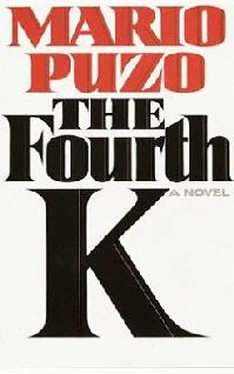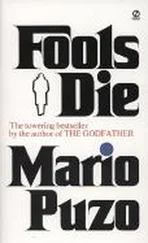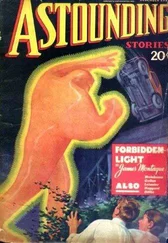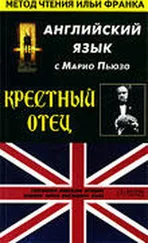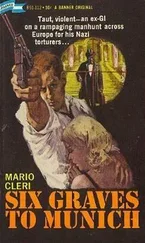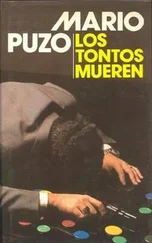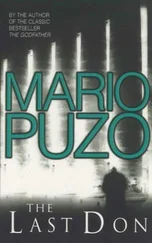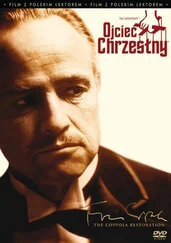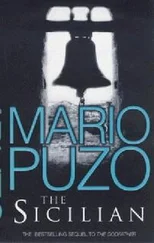These hospitals were sometimes used for secret medical experiments on volunteer prison inmates. But Klee had cleared out the hospital in Washington, D.C., to hold Yabril in isolation. He had also cleaned out the hospital in Long Island to hold the two young scientists who had planted the atom bomb.
In the Washington hospital, Yabril lived in a medical suite fully equipped to abort any suicide attempt by violence or fasting. There were physical restraints and equipment for intravenous feeding.
Every inch of Yabril's body, including his teeth, had been X-rayed, and he was always restrained by a specially made loose jacket that permitted him only partial use of his arms and legs. He could read and write and walk with little steps, but could not make violent movements. He was also under twenty-four-hour surveillance through a two-way mirror by teams of Secret Service agents from Klee's special division.
After Christian left President Kennedy, he went to visit Yabril knowing that he had a problem. With two of the Secret Service agents he entered Yabril's suite. He sat on one of the comfortable sofas and had Yabril brought in from the bedroom. He pushed Yabril gently into one of the armchairs and then had his agents check the restraints.
Yabril said contemptuously, "You're a very careful man, with all your power."
"I believe in being careful," Christian told him gravely. "I'm like those engineers who build bridges and buildings to withstand a hundred times more stress than possible. That's how I run my job."
"They are not the same thing," Yabril said. "You cannot foresee the stress of Fate."
"I know," Christian said. "But it relieves my anxieties and it serves well enough. Now the reason for my visit: I've come to ask you a favor."
At this Yabril laughed, a fine derisive laugh but a laugh of genuine mirth.
Christian stared at him and smiled. "No, seriously, this is a favor it is in your power to grant or refuse. Now listen carefully. You've been treated well-that is my doing and also the laws of this country. I know it's useless to threaten. I know you have your pride, but it is a small thing I ask, one that will not compromise you in any way. And in return I promise to do everything I can so that nothing unfortunate will happen. I know that you still have hope. You think your comrades of the famous First Hundred will come up with something clever so that we will have to set you free."
Yabril's thin dark face lost its saturnine mirthfulness. He said, "We tried several times to mount an action against your President Kennedy, very complicated and clever operations. They were all suddenly and mysteriously wiped out before we could even get into this country. I personally conducted an investigation into these failures and the destruction of our personnel. And the trail always led to you. And so I know we're in the same line of work. I know that you're not one of those cautious politicians. So just tell me the courtesy you want. Assume I'm intelligent enough to consider it very carefully."
Christian leaned back on the sofa. Part of his brain noted that since
Yabril had found his trail he was far too dangerous ever to be let free under any circumstances. Yabril had been foolish to let out that information. Then Christian concentrated on the business at hand. He said, "President Kennedy is a very complicated man, he tries to understand events and people. And so he wants to meet you face-to-face and ask you questions, engage in a dialogue. As one human being to another. He wants to understand what made you kill his daughter; he wants, perhaps, to absolve himself of his own feelings of guilt. Now, all I ask is that you talk to him, answer his questions. I ask you not to reject him totally. Will you do that?"
Yabril, loosely locked in his jacket, tried to raise his arms in a gesture of rejection. He totally lacked physical fear, and yet the idea of meeting the father of the girl he had murdered aroused an agitation that surprised him. After all, it had been a political act, and a President of the United States should understand that better than anyone.
Still, it would be interesting to look into the eyes of the most powerful man in the world and say, "I killed your daughter. I injured you more grievously than you can ever injure me, you with your thousand ships of war, your tens of thousands of thunderbolt aircraft."
Yabril said, "Yes, I will do you this little favor. But you may not thank me in the end."
Klee got up from the sofa and lightly put a hand on Yabril's shoulder, but Yabril shrugged him away with contempt. "It doesn't matter," Klee said. "And I will be grateful…
Two days later, an hour after midnight, President Kennedy entered the Yellow Oval Room of the White House to find Yabril already seated in a chair by the fireplace. Christian was standing behind him.
On a small oval table inlaid with a shield of the Stars and Stripes was a silver platter of tiny sandwiches, a silver coffeepot and cups and saucers rimmed with gold. Jefferson poured the coffee into the three cups and then retreated to the door of the room and put his wide shoulders back against it. Kennedy could see that Yabril, who bowed his head to him, was immobilized in the chair. "You haven't sedated him?"
Kennedy said sharply.
"No, Mr. President," Christian said. "Those are jacket and legging restraints."
"Can't you make him more comfortable?" Kennedy said.
"No, sir," Christian said.
Kennedy spoke directly to Yabril. "I'm sorry, but I don't have the last word in these matters. I won't keep you too long. I would just like to ask you a few questions."
Yabril nodded. Because of the restraints, it was with some difficulty that he helped himself to one of the sandwiches, which were delicious.
And it helped his pride in some way that his enemy could see that he was not completely helpless. He studied Kennedy's face, and was struck by the fact that this was a man who in other circumstances he would have instinctively respected and trusted to some degree. The face showed suffering but a powerful restraint of that suffering. It also showed a genuine interest in his discomfort; there was no condescension or false compassion. And yet with all this there was a grave strength.
Yabril said softly and more politely and perhaps more humbly than he intended, "Mr. Kennedy, before we begin you must first answer me one question. Do you really believe that I am responsible for the atom bomb explosion in your country?"
"No," Kennedy said. And Christian was relieved that he did not give any further information.
"Thank you," Yabril said. "How could anyone think me so stupid? And I would resent it if you tried to use that accusation as a weapon. You may ask me anything you like."
Kennedy motioned to Jefferson to leave the room and watched him do so.
Then he spoke softly to Yabril. Christian lowered his head as if not to hear. He really did not want to hear.
Kennedy said, "We know you orchestrated the whole series of events. The murder of the Pope, the hoax of letting your accomplice be captured so that you could demand his release. The hijacking of the plane. And the killing of my daughter, which was planned from the very beginning. Now we know this for certain, but I would like you to tell me if this is true. By the way, I can see the logic of it."
Yabril looked at Kennedy directly. "Yes, that is all true. But I'm amazed that you put it all together so quickly. I thought it clever."
Kennedy said, "I'm afraid it's nothing to be proud of It means that basically I have the same kind of mind that you do. Or that there is not much difference in the human mind when it comes to deviousness."
"Still, it was maybe too clever," Yabril said. "You broke the rules of the game. But of course it was not chess, the rules were not so strict.
Читать дальше
